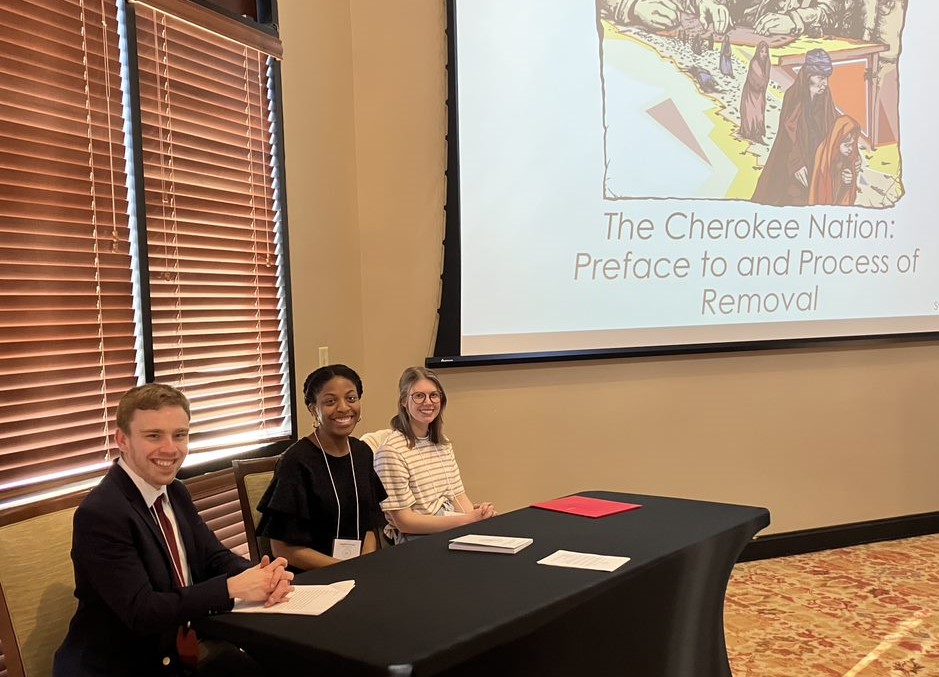
A research project at Reinhardt University is getting a wider audience. Findings within the Cherokee Voice Project were presented at the Georgia Associate of Historians (GAH) annual conference, held last month at Valdosta State University.
The goal of the project is to transcribe thousands of claim documents filed by citizens of the Cherokee Nation, prior to the Trail of Tears in the 1830s. The findings include insight into the agricultural production by Native Americans, and what they owned and wanted reimbursement for, such as land, livestock and tools. Stories of how the Cherokee Indians arrived in Georgia, and their forced relocation are also being discovered.
Andrew Jones, a Post-Doctoral Teaching Historian at Reinhardt, has been leading the Cherokee Voice Project since last August. “A lot of the documents we have of the Cherokee people are written by white people who were there at the time. There aren’t a lot of accounts from the Cherokees themselves, so these claims give us a native voice, or an indigenous perspective of the removal period,” says Jones.
The Cherokee Voice Project is funded by the National Endowment of Humanities (NEH), and was created by Jeff Bishop, the Director of the Funk Heritage Center and Professor of Public History at Reinhardt. A grant allowed Jones and Bishop to hire three interns to help with this extensive process. RU Seniors Christopher Walker, Kamille McKinney and Sydney Murray, along with Jones, shared their research at the conference.
“One thing that shocked me, is when we realized the Cherokee lived in places like Shoal creek and Lost Mountain Creek, two communities walking distance to campus… It’s not just about the past, but where we are today; Understanding what it means to live in Waleska in 2023. Part of the roots of this place are the indigenous people who came before us and were forced by the Georgia government, and by the federal government, to abandon their homes to make way for white settlement,” explained Jones.
With the grant potentially coming to a close this summer, Jones and the three undergraduate researchers will spend the remaining months transcribing and digitizing more claims. They plan to upload the transcriptions to the Trail of Tears Association website. They hope their work will continue to be used by future scholars to understand the history of Cherokee life in Georgia.

